Mindful Eating (…don’t water it down to “just eat slow without distractions”)
This post was born because I left my prenatal chiropractor appointment last week and was overly hungry. I immediately headed to pick up lunch, but I had to get my food to-go because I had client appointments starting soon. As I drove to my office I was eating a piece of fluffy, round pita bread that came with my meal. I was distracted while eating…obviously because I was focused on driving… and the thought crossed my mind, “well this meal isn’t very mindful.” And then (because I like to be curious about the automatic thoughts my mind has about food), I was like, “wait what?! I’m hungry and I’m eating. How could that not be mindful?”
It reminded me of the importance of not watering down mindful eating to just eating slowly without distraction. When people talk about mindful eating I feel like so many times they minimize it to just slow down when you eat / put your fork down between bites / etc.
Being mindful with food = being aware of something relating to food. The thing you need to be aware of isn’t always eat slowly and eat without distraction.
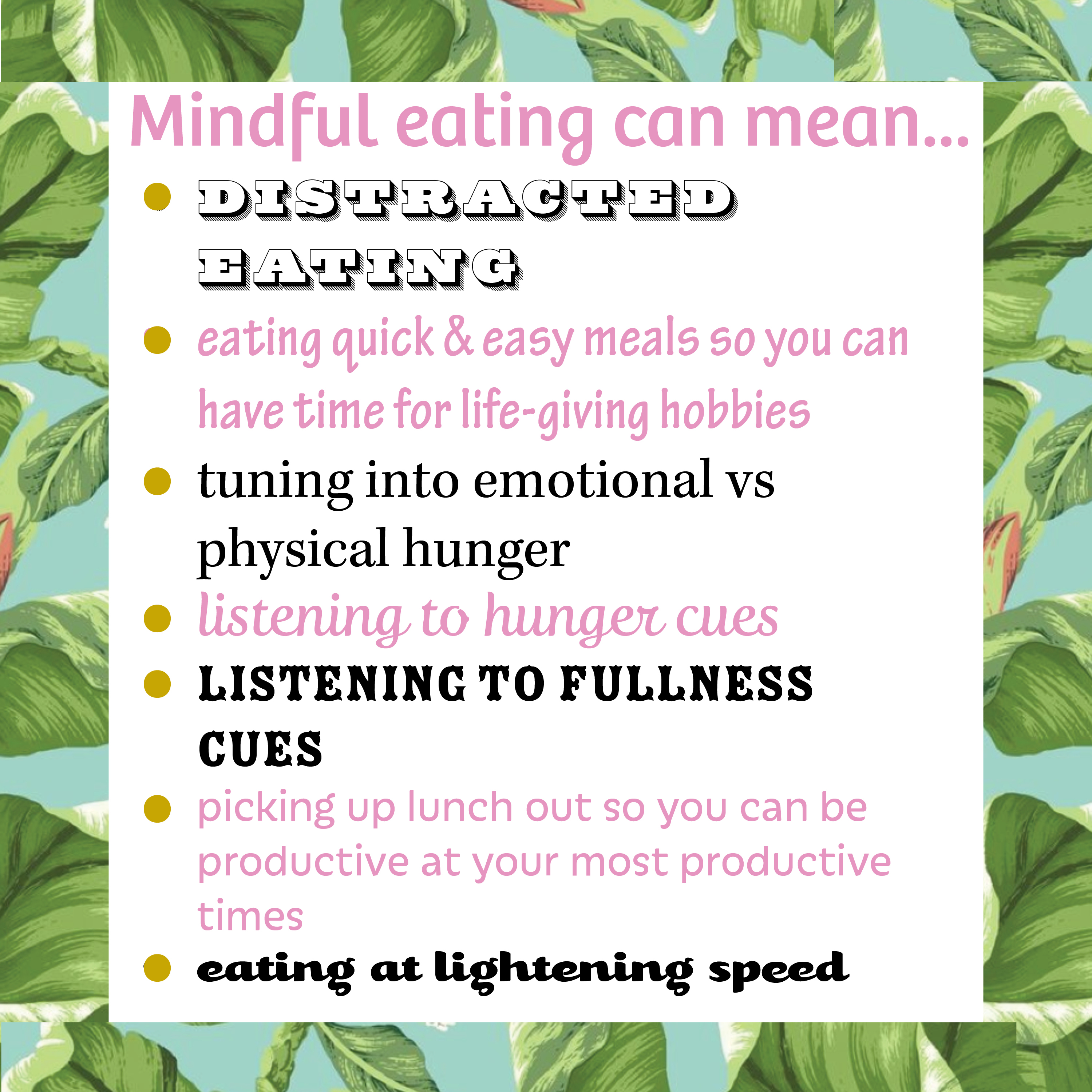
Being mindful with food means being aware of what you are working on in your relationship with food and making sure you are taking steps to address that. You may not need to be working on eating slow and eating without distraction. Here are some examples of what mindful eating can be (beyond just “eat slow without distraction”)…
1. If you are someone recovering from food rules, restrictive eating, or anorexia, mindful eating for you may not mean distraction-free eating. You likely need distraction filled eating because eating certain foods gives you so much anxiety. Open up Netflix and watch a funny episode of something to help distract you from the anxiety you may feel when you eat something that challenges your food rules, like a toaster waffle smeared with nutella for a snack. Eventually you’ll want to be able to tolerate the anxiety of eating x food without distraction (that’s where your therapist will come in to support you!), but step one is eating the food! So for you, mindful eating = distracted eating.
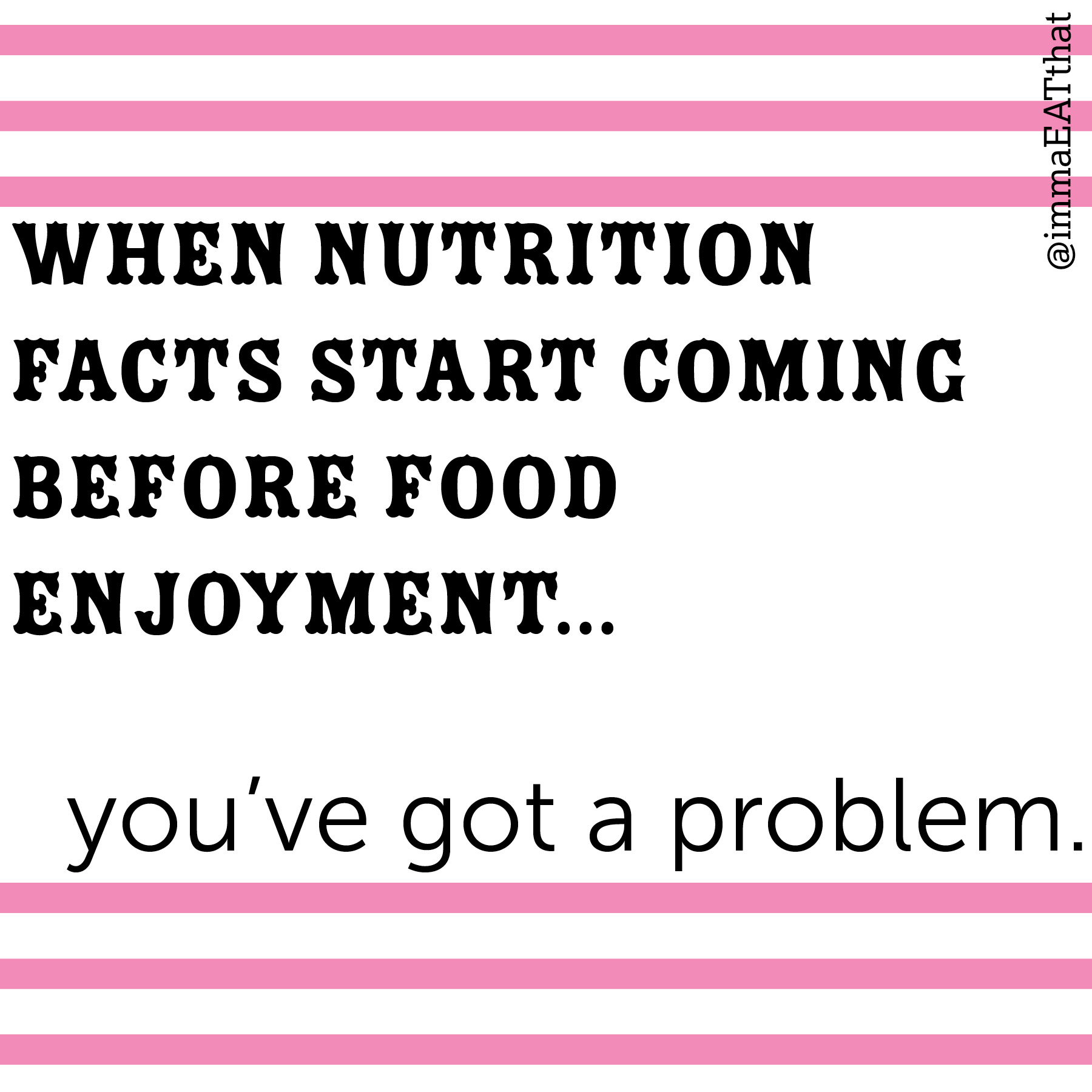
2. Maybe you are working to make food less of a centerpiece in your life. If food and exercise are your only hobbies, perhaps you being mindful with food means that you eat fast food for dinner because you have an art class to get to (aka a true hobby that isn’t sucking your soul away). So for you, mindful eating = making meals easy so you can focus on life-giving hobbies.
3. For me, a lot of time mindful eating means eating lunch out because I’m far more interested in sleep, seeing clients and getting blog work done than I am in taking the time to prep a lunch to take with me to my office. Of course it isn’t black and white and I still can prep a lunch and sleep and see clients and get blog work done, but some mornings I just want to get on with my day and not take the time to prep a lunch. So here, mindful eating = picking up lunch out so you can be productive at your most productive times.
4. If you are someone whose only way to cope with stress / negative emotions is to eat emotionally, mindful eating for you could be having awareness of emotional hunger versus physical hunger. So for you, mindful eating = tuning into, “is this emotional hunger or physical hunger?” (and then practicing some new coping skills to diversify how you take care of yourself.)
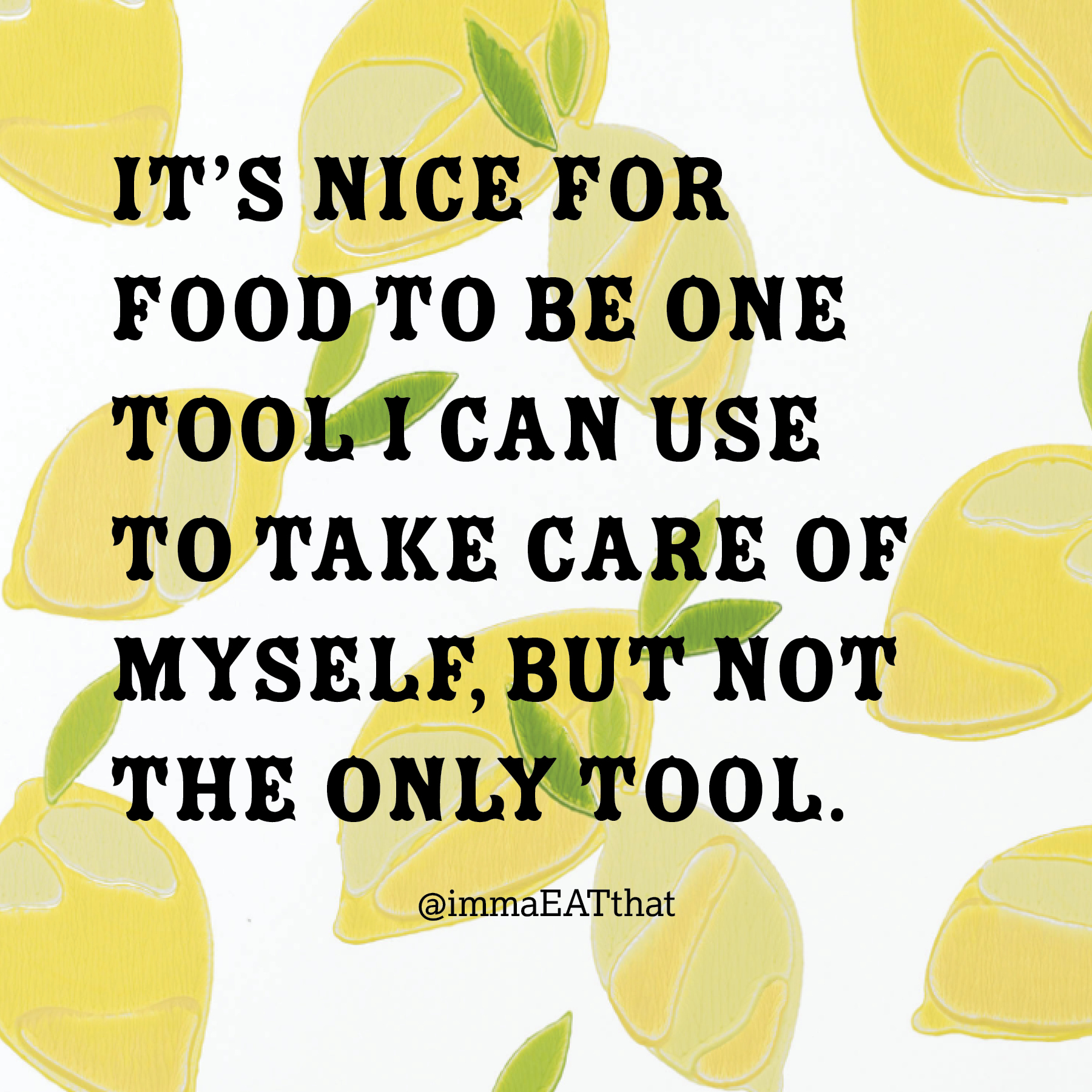
5. If you’re a mom of young kiddos, mindful eating can be eating in 3 minutes flat because you have a screaming toddler and you’re hungry and need food. So for you, mindful eating = eating at lightening speed.
6. Mindful eating can mean eating a large piece of pita bread as you drive because you’re freaking hunger NOW. Mindful eating = listening to hunger cues.
7. Mindful eating can also mean tuning into your fullness cues. A note here though. People can get so hung up on fullness cues by thinking, “I have to eat the exact amount of food to get to the perfect fullness or else I will gain weight and that is the worst thing and I can’t tolerate that and forget it I’ll just restrict because that is easier than tuning in and trying to figure out what the right amount of fullness actually is but holy crap every time I restrict I end up bingeing so restriction isn’t a good plan. AHHH why is eating so complicated?!”
WHOA.
The hunger and fullness scale is a tool to help you better understand how to take care of your body…it’s not a scale to cause you more anxiety and stress. Fullness is a normal sensation you should feel multiple times a day. So for some, mindful eating = tuning into fullness cues, but more importantly…not getting overly stressed if you eat past your fullness cue or get overly stressed as you are learning to tolerate a normal fullness amount. If you are one of those people who is constantly bloated, read this.

NOW.
No advice is good advice for everyone. But I’m just hear to say that mindful eating tends to get praised and it is often poorly defined as eating slowly and without distractions…so I have a problem with that. If you’re someone who thinks you need to be eating slow and without distraction, that may not be for you. I’m a huge fan of sitting down to a meal surrounded by the ones you love and enjoying a meal without phone / tv distractions. That said, I’m not a fan of eating meals alone without distraction. I’d much rather have a podcast on while I eat and I’m a-ok with that.
Maybe I have a weird perspective on mindful eating. But how people talk about mindful eating rubs me the wrong way. It always just sounded like, “oh here’s another way we are supposed to deprive ourselves around food and we can’t trust our bodies.” It sounds like,”you have to eat slow. You have to put your fork down between bites. You have to eat without distraction.” For me, the term mindful eating (like the term balance) always gives a vibe of a deprivation mindset around food. It gives a sense of having to “be careful” around food, which isn’t helpful for recovery from disordered eating.
A much more helpful way to think about mindful eating is to realize that mindful eating is more than just eating slowly. Mindful eating is being aware of what you are working on in your relationship with food and making sure you are taking steps to address that.

If you don’t know where to start or what you should be focusing on in your relationship with food, working with a dietitian who specializes (or is getting consistent training) in the treatment of eating disorder can help you understand what is the first step to improving your relationship with food (even if you don’t have a full blown eating disorder). These individuals understand non-diet mentality and intuitive eating. The credential you are looking for is CEDRD (Certified Eating Disorder Registered Dietitian). A credential I don’t have yet, but hopefully by next year…after the required test + conference + case studies + completed supervision hours…I will! Woohoo!
Just an FYI. I’ll be accepting new virtual and in-person nutrition counseling clients until September 15th and then I’ll be waiting until after maternity leave to accept anyone new. I’ll only be accepting about 5 new people. If we start working together I want to make sure we have some time to put in good work before baby comes in November, so September 15th will be my cutoff date for anyone interested in working towards a better relationship with food before the holiday season is upon us.

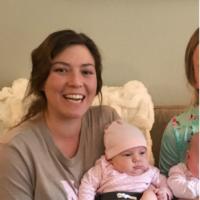
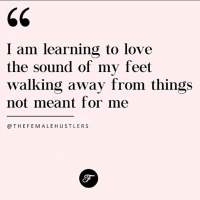


Mindful eating for me means listening to my hunger and craving cues. I have a three year old and a nine month old with whom I eat breakfast and dinner. Those meals cannot be slow and peaceful! I eat lunch while they nap, but that’s hurried too because I also have things to get done during my only break of the day. I do tend to get overly full at dinner but I think it’s because it’s my biggest and most enjoyable meal of the day. I’ve recovered from anorexia and my main focus is to stay healthy for my babies!
Thanks for sharing, Amy!
You touched on the part of intuitive eating that left me the most nervous. Eating mindfully (the way nutritionists usually intend it) sounds like just another addition to my toolbox of unhealthy, obsessive coping skills.
Currently, eating mindfully means spontaneity. So when coworkers ask me if I want to add to the bagel order for lunch I quickly say yes even though I had packed a lunch. My anxieties around food have always stemmed from over-preparing, so even advice to cook new, exciting meals for myself may sound good but I usually end up obsessing over that as well.
With grad school/interning/full time work looming in my near future I am trying to truly embrace this upcoming season of spontaneity. I will be working 14 hour days until June so my recovery will look very different than it has. I will be graciously accepting short-cuts with food (fast food, frozen meals, any hot meal that my mom has prepared) rather than adding to my stress by attempting to keep up with the meal prepping I have been doing for years.
My priority right now is setting up and working towards my future, not meal prepping and exercising. I have eaten enough vegetables within my disordered past to last a lifetime, if I don’t get a vegetable for a while I will be A-OKAY. :)
Thank you so much for the breath of fresh air you bring us.
LOVE THIS MESSAGE, Catherine! –> “My priority right now is setting up and working towards my future, not meal prepping and exercising.”
I almost always have a magazine to browse through while I’m eating breakfast, and sometimes I feel bad that I’m not being mindful or “experiencing” the meal. But I like the way you put all this – it’s not all about directly your entire attention to the food. I really enjoy my breakfast routine. I like breakfast foods, I like my quiet morning time alone, I like my stupid magazines. I think that counts as good mindful eating!
Agreed!
YES! I completely agree. I think once you move away from an eating disorder/disordered eating you begin to realize that food is a necessary part of everyday, BUT not the sole focus of everyday. Life is busy and we can’t always sit & eat without distractions. I think that’s part of becoming an intuitive eater. The other day I was super hungry after work, but had to make it to church so I swung by a coffee shop for a latte and a snack. I ate it quickly in the car and didn’t think twice about it. #LittleVictories
Thanks for commenting, Miley!
Thank you for this! As a person who considers herself 80% recovered, moving away from feeling like I didn’t eat perfectly mindfully is a big struggle for me. I always appreciate your real-life perspective on eliminating food rules. For me eating mindfully means enjoying a meal out and trying fun new foods, even if I eat a bit more than I wanted!
Thanks for sharing, Anna<3
I really love this!! Some days you just can’t be slow and methodical, and that’s perfectly okay. This resonates with me and has a similar message to Rachael Hartley’s latest post about self-care. This idea that it has to be done a certain way and contain certain components. This completely negates the idea of self-care. It doesn’t have to be pristine and well-thought out. It can just be a way of day-to-day life than evolves over time. Same with mindful eating. Matt eats much more quickly than me, and I have been known to say how I felt he was missing flavors and experiences of the meal, but maybe not! For him, he may just experience things differently than me. :) Thanks for a great topic, as always!
Great points, Kori!
It’s always changing for me! Lately I have been trying to follow hunger cues more. I know I’m not as hungry at night since I tend to eat later, so I’ve been trying to have a more filling lunch and a lighter dinner.
{love that donut shot! yum}
I’m always a fan of experimenting with what works best for you!
I think everyone has their own perspective of mindful eating… I also don’t like to eat alone without a distraction- to me it just makes the meal more enjoyable to have something to sort of replace company. I think one of the most important parts of eating intuitively is enjoying your food as it is- just food. It doesn’t have to be complicated or focused on xyz- food is nourishment and sometimes its nourishing for the soul to curl up with an episode of parenthood while eating dinner :) PS let me know if you are interested in guest posts or anything during your maternity leave- I’d love to help out.
Thanks for this offer, Jess! Still working out details for maternity leave but will let you know :)
I’ve never thought about mindful eating in this way before and I like it! Definitely takes some pressure off :) I recently came back from travelling and a lot of my food decisions on my trip were based on factors other than hunger cues. For example — “I just woke up and I’m not very hungry yet, but we’ve got a three-hour walking tour this morning so I’ll eat a substantial breakfast now to fuel me through to lunch” or “I’m comfortably full from dinner, but of course I want to try the local specialty dessert” or “I’m buying snacks at a service stop and I’m choosing Doritos because chocolate bars will melt in my bag on the hot bus ride”. It was actually pretty great — I had some amazing food experiences, but hardly thought about or tried to plan my meals while doing other activities, which is a pretty big deal for me!
Sounds like an awesome adventure, Grace!
I LOVE THIS. Robyn’s recent post about her go-to lunch salad lit a whole new spark for me in my IE journey. Similar to what you are saying in this post, she shared that a lot of times lunch just isn’t her best meal and a lot of times she eats quickly because she has other things she wants to work on (like her blog… gosh where would we be without you two devoting your lunch hour to your blogs!!). She said something along the lines of “this salad works for me. It’s not always 100% what I am craving, but it gets the job done and because food is not the most exciting thing in my life anymore, I eat it and get on with my day.” THAT is what I want. For food to not be the central focus of my day. And guess what… I think I am getting there! I just started a new job at a school where lunch in the dining hall is free. It’s hard for my diet mind to give up control of my lunch menu to someone else, but I want to save money and take advantage of this perk. The food also isn’t always AMAAAZING if you know what I mean, but I have challenged myself to see if I can approach it Robyn’s way. And this post is just further encouraging me to broaden my definition of what it means to eat mindfully. Eating in the dining hall is being mindful because I’m purposely using it as a chance to practice the eating behaviors that I want to adapt.
One last note- I live alone so breakfast and dinner I eat by myself. I’ve often noticed how much more enhanced the eating experience is when shared with loved ones, but for me right now that is not an every day reality. But to help me simulate the experience of eating with someone else, I usually do something else while eating… it actually helps me to not swallow my meal whole. I always thought I was just the worst at mindful eating, so thank you for helping me to see it in another light.
Thank you! Currently, I’ve been frustrated because I can’t enjoy dinner due to having two little ones. I don’t eat much, and then before bed, I realize I’m still hungry. Mindful eating for me looks like drinking a protein shake (which doesn’t taste amazing but is quick to drink and fills me up) at 5pm so I can power through the evening and eat after my toddler goes to bed at 7pm, when I finally have a chance to enjoy my food.
First of all – you are going to be the best mom.
Second of all, I love this. And THANK YOU for acknowledging that distracted eating is NOT ALWAYS POSSIBLE. I was seeing an ED RD for years (she became more of a friend, that I paid…) and while I am far into my recovery, I was/still struggle with eating full meals vs. just like 89 little meals throughout the day. She really emphasized sitting down and eating complete meals which is great advice! But at the time I had a 3 year old and an infant (now a 4.5 year old and 17 month old) and honestly, most lunches were/ARE spent shoving a sandwich in my mouth at while standing counter and trying to entertain to kids at once, and most dinners were/ARE spent sitting on the couch with my husband after both kids are FINALLY asleep watching a mindless show together and eating something nourishing. Am I being super mindful? Kind of? Am I being the best example? Ugh, probably not. But we are so in the thick of things – so mindful eating for me means fueling my body to keep the circus going at the moment, you know?
Anyhoo, thank you for this. And for all you do. You rule.
^^^I relate so, so much.
*twins mcstuffins emoji* THE STRUGGLE IS REAL. ; )
I appreciated this post SOOO MUCH!
I’m a passive perfectionist-in-recovery and very much struggled with turning intuitive eating into just another ideal state/action I was unable to attain or maintain. There are some lovely neutral days, and still some strained ones.
Today, mindfulness and intuition was….heating a tamale, turning on an episode of Doc Mcstuffins for my 4& 2 year old, and sitting by myself on the pantry floor with the door shut. Food needed to happen, and 5 minutes of no touching, no clamoring for tastes of my(exact same) food, no talking also needed to happen.
HAHAHA ! #SAMELIFE ; )
I’m guessing Doc Mcstuffin in something I’ll learn about in mom life…looking forward to it :)
Yes! This resonates with me. Mindful eating can lead to guilt if it’s interpreted as being hyper-sensitive to food and food rules. Recently I had to eat a dinner at work that I didn’t like the taste of very much. The rice and veggies were good, but the chicken was NOT. I still ate it though. I didn’t have any other food, and I am recovering from an eating disorder so I have to keep up my intake. It was a hard experience, which unfortunately induced some guilt. But, by choosing to eat the food and not throwing it away, I was sticking to my values of: 1) refeeding myself, 2) accepting that not ALL meals can be perfect and wonderful and this is part of life and normalized eating.
Thanks for sharing your values, Gemma! I know this will be helpful for others to read <3
Wonderful blog post! I came over to your blog from your IG page :) Recently switched over to more of an intuitive eating lifestyle from tracking macros. I have been overweight my whole life + just recently dieting for the last time for my wedding. This lead to increased episodes like night eating disorder behavior. Since switching to a less deprived mindset, this has significantly decreased! I agree that I feel I must be somewhat distracted when eating alone like by a podcast. Realizing that I need food and will get it whatever way necessary is being mindful. When we are thirsty, we don’t worry about how fast or slow we drink or where we are. Same should go for food!!
Thanks for clicking over from IG and commenting, Brittany! If you’re newer to intuitive eating…have you listened to seasons 2 & 3 of the Food Psych Podcast? It’s a great resource!
Ahhh, this post resonated so much with me!! I am definitely a fan of eating without distractions and being in touch with the flavours, smells etc of your food WHEN that is the right thing for you. But I am so glad you wrote this because every time I do something else while eating (doing a crossword with my Mum is a favourite) because I’m still recovering and the distraction helps, I feel pretty guilty because I’m not being ‘mindful enough’. Thank you so much for bringing my thoughts around to the idea that mindful eating is not just a set of rules! I know that what I need to work on now is making food less of a centrepiece in my life. I want to be able to just eat something quickly if I need to and get on with life. Or eat something that might not be exactly what I wanted because it’s available and I am hungry and just need to eat and get on with it. Thank you so much for the post, I don’t think you have a weird perspective on mindful eating at all, I think it’s a very important perspective that not enough people are aware of, even though they probably have it themselves but just don’t know it!
Yessss! I have an almost 3 year old and a 9 month old… so this message resonates. Sometimes it’s annoying to be bombarded by messages about slow, thoughtful eating and elaborate self care regimens! Love this message and Rachael’s post about self care being as simple as brushing your teeth. I’m at a stage of life where exercise (something I very much enjoy!) and basic hygiene are all the self care I can squeeze in. And food is food and sometimes (often) I eat treats on the couch to relax after my toddler goes to bed. And it’s all OKAY! :)
Kylie this post is GOLD!!! I have thought for a long time that people obsessed over “mindful eating” looking one way and if you didn’t do it that way, then you obviously had more work to do in your relationship with food. THANK YOU for addressing this and explaining it so well!! It helped me too, even though I would say that I am recovered from my ED (though of course I still have the influence of diet culture that sometimes poisons my thinking before I catch it), reminding me that my life is really the important thing, and what brings me joy and purpose, not perseverating over how I approach food. I wish everyone I know who struggles with their relationship with food (especially for those working on their recovery) could read this. Definitely bookmarking it and sharing it with as many people as I think will benefit. Thank you again!!!?
Having this mindset has been extremely helpful for me, too. For the longest time, I thought it was “bad” to eat quick and convenience foods because they were not “clean” options. Sometimes this would lead to me feeling frustrated with my choices or feeling deprived because I wasn’t actually eating something that maybe I WANTED in the moment. After beginning my intuitive eating journey, I learned how much I had missed Ramen Noodle cups. As weird as that sounds… I had not “allowed” myself to have this food item since college. Needless to say, me and Ramen had a moment for a few weeks, lol!
Pingback: Good good links #192 – Let's get living
Pingback: A Little Somethin' Sunday #90 - Sinful Nutrition
I looooove this post. I really appreciate what you have to say especially because for a long time, I was really frustrated by the “eat slowly without distractions” rule. I found that, especially because I live by myself and often eat by myself, eating without something to read results in my food just sort of disappearing super-fast because I don’t have anything to do between bites and I feel awkward.
For a long time I felt guilty about that, but just in the last couple of months I’ve been like, “Why should I feel guilty about that? I read while I eat. Like, on the scale of problems, how bad is this really?” I really appreciate the way you’ve reaffirmed that this, too, can be a kind of mindfulness.
I like the question you asked yourself, Joyce –> “like, on a scale of problems, how bad is this really?” Puts things in perspective and leads to the question of, “Is it worth it to feel guilty about this?”
Thanks for sharing!
I keep thinking about this post that you wrote & had to come back & tell you how much I love it!!! My meal is more satisfying when I am eating alone when I read articles, or blogs. I recently decided I didn’t care if it was “wrong” & that I enjoyed my meals more when I read & it helps me slow down & enjoy the experience.
<3<3<3 thanks for letting me know, Jennifer!
I love this Kylie! In my practice I call this “IRL mindful eating” vs. “tryin’ to be a Buddhist monk mindful eating” ?
lol that is brilliant!
Such an awesome post! I find that I really don’t like eating without distraction, and sometimes when I have a Netflix episode on while I eat, I feel this pang of guilt, like this isn’t what I SHOULD be doing. I never even realized that this in itself is a restriction/fear thought. Though I never ever listen, I’d rather not even think that in the first place. This post gave me a whole new perspective on mindful eating, though, and reminded me how much crap the media tries to feed us all the time.